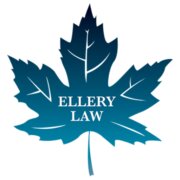Best Franchising Lawyers in Timmins
Share your needs with us, get contacted by law firms.
Free. Takes 2 min.
List of the best lawyers in Timmins, Canada
About Franchising Law in Timmins, Canada
Franchising in Timmins, Canada, reflects the broader Canadian market's regulatory environment while bearing unique local nuances. It involves a relationship between a franchisor, who owns a brand, and a franchisee, who purchases the rights to operate a business under that brand in a specific location. The franchising sector in Timmins includes various industries such as food services, retail, and hospitality, offering growth opportunities while necessitating a strong understanding of legal obligations and opportunities.
Why You May Need a Lawyer
Legal assistance in franchising is essential due to the complex nature of franchise agreements and the importance of compliance with both federal and provincial regulations. Common situations requiring legal advice include:
- Reviewing and understanding franchise agreements and disclosure documents.
- Negotiating terms and conditions of the franchise contract.
- Resolving disputes between franchisors and franchisees.
- Ensuring compliance with federal and provincial franchise legislation.
- Assisting with the purchase or sale of a franchise.
Local Laws Overview
Franchising in Timmins is governed by both federal and Ontario provincial laws. The Arthur Wishart Act (Franchise Disclosure), 2000, is the key piece of legislation in Ontario that regulates franchise relationships. Key aspects include:
- The requirement for franchisors to provide a disclosure document to potential franchisees at least 14 days before signing any agreement or payment.
- The right for franchisees to rescind the agreement within 60 days if the disclosure was not provided or was inadequate.
- The duty of fair dealing applied to both parties, ensuring honesty and good faith in their dealings.
Frequently Asked Questions
What is a franchise agreement?
A franchise agreement is a legally binding document outlining the terms and conditions for the franchisee to operate a business under the franchisor's brand.
Are there specific disclosure requirements in Ontario?
Yes, the franchisor must provide a comprehensive disclosure document 14 days before the franchisee signs the agreement or pays any related fees.
Can a franchisee negotiate the terms of the agreement?
Yes, negotiating terms is possible, but this depends on the franchisor's policies. It's advisable to seek legal help to understand what changes are feasible.
What happens if a franchisor fails to provide disclosure documents?
Failure to comply can result in the franchisee rescinding the agreement within 60 days or suing for damages within two years of the agreement date.
How are disputes between franchisors and franchisees resolved?
Disputes may be resolved through negotiation, mediation, or litigation, depending on the terms outlined in the franchise agreement.
What is the Arthur Wishart Act?
The Arthur Wishart Act is Ontario legislation that governs the franchise relationships, ensuring fair dealings and requiring disclosure.
How can a franchisee terminate a franchise agreement?
Termination conditions should be stipulated in the franchise agreement, and legal assistance can help understand these terms.
Are there financing options available for opening a franchise?
Franchisees can explore various financing options, including banks, private lenders, or franchisor financing programs.
Is training provided to franchisees?
The franchise agreement usually includes provisions for initial and ongoing training by the franchisor.
How long does a franchise agreement last?
The duration, as well as renewal rights, are specified in the franchise agreement and can vary widely.
Additional Resources
For more information on franchising, potential franchisees may consider the following resources:
- The Canadian Franchise Association (CFA) offers educational resources and support.
- Ontario's Ministry of Government and Consumer Services provides guidance on the Arthur Wishart Act.
- Consultation with local franchising or business development centers can provide useful insights.
Next Steps
If you are considering entering a franchise agreement in Timmins, seeking legal counsel is a prudent step. A lawyer experienced in franchising law can assist you in reviewing agreements, negotiating terms, and ensuring compliance with applicable legislation. Begin by making a list of questions and potential franchise opportunities, and schedule a consultation with a legal professional who can guide you through the process.
Lawzana helps you find the best lawyers and law firms in Timmins through a curated and pre-screened list of qualified legal professionals. Our platform offers rankings and detailed profiles of attorneys and law firms, allowing you to compare based on practice areas, including Franchising, experience, and client feedback.
Each profile includes a description of the firm's areas of practice, client reviews, team members and partners, year of establishment, spoken languages, office locations, contact information, social media presence, and any published articles or resources. Most firms on our platform speak English and are experienced in both local and international legal matters.
Get a quote from top-rated law firms in Timmins, Canada — quickly, securely, and without unnecessary hassle.
Disclaimer:
The information provided on this page is for general informational purposes only and does not constitute legal advice. While we strive to ensure the accuracy and relevance of the content, legal information may change over time, and interpretations of the law can vary. You should always consult with a qualified legal professional for advice specific to your situation.
We disclaim all liability for actions taken or not taken based on the content of this page. If you believe any information is incorrect or outdated, please contact us, and we will review and update it where appropriate.









